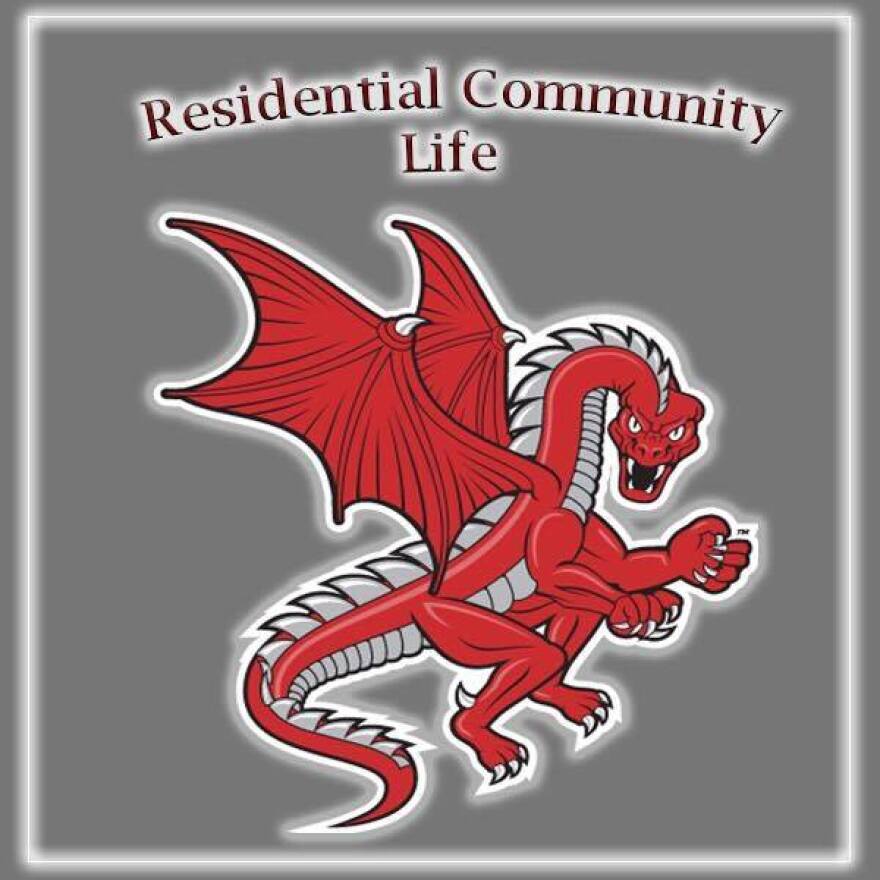Friday was the first day of an unexpected move-out at SUNY Oneonta, where more than 500 students have tested positive for COVID-19 since the start of classes on August 24. The outbreak caused a two-week shutdown, followed by a move to all-virtual instruction this fall. WAMC's Jesse King spoke with resident assistants at the college, who have been under particular pressure during the outbreak.

Mike Caro, a junior working as an RA in Huntington Hall, was hardly surprised by the school's decision to send students home. He says he was skeptical of the college’s reopening plan from the get-go – even as he and his coworkers prepared dorms for the return of students in early August.
“Even [during] training, social distancing and CDC guidelines were spotty," says Caro. "I didn’t think that we would make it past October. And we barely made it to September.”
Caro is in his fourth semester as an RA, and says it’s always been a heavy-duty job. He likens RAs to the school’s “Swiss Army knife,” tasked with building community among residents while also enforcing campus policy, playing therapist – and now, acting as health inspector. Unlike at some other Northeast colleges, Oneonta students were not required to undergo COVID testing prior to their return. Officials have blamed unsanctioned off-campus gatherings for the spike.
Cooper Levine is a sophomore working his second semester as an RA in Hulbert Hall, the largest dorm on campus.
“I live in a freshman dorm. So we were kinda seeing firsthand the amount of people that were going out and partying," Levine explains. "We had to really push the masks to these people a lot more, because they didn’t really understand the gravitas [sic] of the situation. Not saying that everyone didn’t – just more people than you’d expect were [not wearing masks]. So when it first shut down I was, like, not in a good headspace.”
SUNY Oneonta’s Office of Residential Community Life employs nearly 130 students, who typically receive a shared bedroom and discounted meal plan as compensation for hours at the front desk, regular meetings, monthly programs, and more. Before Thursday’s shutdown news, Caro and Levine were among 40 RAs threatening to strike next week, unless the school ponied up minimum wage for the extra work – and extra risk – brought on by COVID-19.
When the college initially shut down on Sunday to pool-test its entire campus community, students were largely confined to their dorms. But Caro says RAs continued knocking on doors and interacting with students regularly — in some cases, even, to communicate test results or quarantine plans in the middle of the night. Levine says the wait-time between when a student tested positive and when they were moved into quarantine varied greatly, further putting RAs at risk when it came to, say, delivering meals.
“For the first three days of quarantine, which was the Monday, Tuesday, Wednesday of this week, they delivered food. And then they just kind of left it and were like, ‘Bye!’ And we’re like, ‘Wait, what do you mean, bye?’ They’re like, ‘Bye!’ So we’re like, ‘Cool. Sweet,'" Levine laughs. "I know one of my friends on Wednesday, she spent eight hours just giving out food – when she had classes, and we had Club Expo that day, and she was on duty that night.”
In an interview with WAMC earlier this week, college President Barbara Jean Morris acknowledged that the school struggled with the initial rollout of its socially-distanced meal plan. Wilsbach Dining Hall is now open for students to grab takeout in-person, and the school is considering whether to continue this on a smaller scale once the majority of students have gone home.

Caro, Levine, and the other RAs have dropped their demands for now, in order to help with the mass exodus expected through Monday. SUNY Oneonta says a few students who wish to stay on campus may still request to do so, but those who leave will receive full refunds on their room and prorated returns on board.
Caro says any RAs who stick around may receive minimum wage for desk hours. He says those who don’t will have to reapply for their job come spring, should the campus reopen again.
"Honestly, I haven't made that final decision yet, we'll see what happens in the spring because everything's a little up in the air right now," notes Caro. "I think the college at the very least could have maybe had an enforcer of mask policies, maybe had the police more involved? I don't have a good answer for that, but definitely testing would probably be the biggest one. There's no reason why we would have so many students come back to one location without knowing that they could be carrying the virus."
For Levine, it feels like less of a choice. He’s got five siblings sharing space at home – five siblings his parents would like to see go to college as well. While he has his gripes with the position right now, Levine says being an RA has been one of the most helpful financial opportunities available to him so far.
“If I don’t get approved to live on campus I don’t know if I’m gonna continue classes or not. I didn’t go out and party, I wore my mask literally all the time," adds Levine. "It’s not fair that I have to get punished for doing everything right.”
SUNY Oneonta has roughly 6,000 undergraduate students. Although the outbreak is the largest in the SUNY system so far, the school says none of its employees have tested positive as of Friday. Next door Hartwick College says it has five cases of the virus since the start of its semester on Monday.






